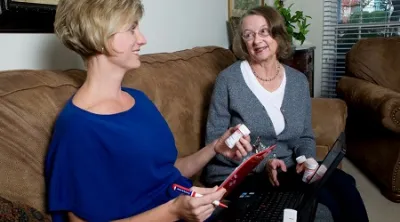Medication is a powerful companion in our quest to lead healthy lives. It helps us fight and prevent disease, alleviates pain and swelling, lowers fevers and helps millions of people feel better and stay well every day.
Medication is a powerful asset to our health, but it also requires great responsibility. Medications can be dangerous if not used correctly or if taken in combination with other drugs, turning something intended to make you feel better into something that poses a threat to your health.
This problem is of particular importance among the elderly, who often are taking multiple medications and can have difficulty keeping track of their schedule and dosages. Medication errors not only endanger the lives of well-being of as much as half of the nation’s elderly, but also contribute to more than $170 billion in drug-related illnesses every year.
As part of a commitment to improving healthcare quality and safety in local communities, Arkansas Blue Cross and Blue Shield flagged this issue as an area in which they can make a difference and took action.
The Blue & You Foundation For a Healthier Arkansas, which is a charitable foundation created and funded by Arkansas Blue Cross and Blue Shield, provided a grant to a North Little Rock, Ark., nonprofit called CareLink to enable them to better tackle this issue. With the funds, CareLink was able to add a medication safety program called HomeMeds to its services for senior citizens in central Arkansas.
HomeMeds is a proven medication safety program that identifies, examines and resolves potential medication problems through use of an evidence-based medication management system for 500 Medicaid home-care clients to six counties in Arkansas.
The results of the program demonstrate just how important it is to address this issue. In just one year, CareLink clients saved $33,840 in the cost of duplicated or conflicting drugs and saved $576,805 in avoidable medical interventions or hospitalizations.
In order to uncover problems with drug interactions or drug duplications, CareLink coordinators visit patients at home and enter all of their prescriptions and over-the-counter medications in the HomeMeds application on laptop computers. If a combination of drugs generates an interaction or duplication alert, coordinators send the information electronically to pharmacists at the University of Arkansas for Medical Sciences who identify the problem and relay the information to the patient’s physician for resolution. They also assist seniors with tools like a labeled pill box to help them take their medications correctly.
To learn more about how Blue Cross and Blue Shield companies are making a difference in their local communities, download the full Investing in America’s Health report.

